7 Best Philosophy Books Of All Time (Exciting Journey)
Last Updated on May 19, 2023 by Karl
Philosophy has been a fundamental aspect of human thought for centuries, and reading philosophical works is an excellent way to gain insights into life’s deeper questions. Since ancient times Philosophy has been a part of human thought and over the centuries, it has developed into a rich and diverse field of study that has produced countless books, ideas, and debates. As I began compiling my list of the 7 best philosophy books, I realized that my choices spanned the origins of Western philosophy with Plato and Aristotle, the Stoics, and the modern philosophy of thinkers like Friedrich Nietzsche.
I find it fascinating to see how ideas have evolved over time and how they continue to shape our understanding of the world and our place in it. While everyone has their own unique taste in books and philosophical ideas, I’ve selected these titles because they represent timeless classics that have something to offer to every reader.
So, whether you’re a seasoned philosopher or a curious newcomer to the field, I hope my list will inspire you to explore these works and find new insights into the world around us.
What Are The Best Philosophy Books?
1. “Beyond Good and Evil” – Friedrich Nietzsche.
Best For Ethical Reflection:
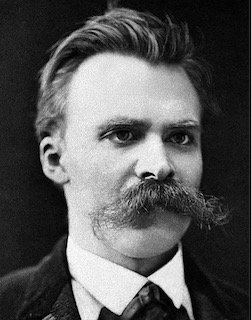
“Beyond Good and Evil” was published in 1886 and is one of Nietzsche’s most famous works. Nietzsche was a German philosopher and cultural critic who lived from 1844 to 1900. He is known for his radical ideas about morality, religion, and the nature of humanity.
The book is divided into nine sections, each containing a series of aphorisms and reflections on various philosophical topics, such as truth, morality, religion, and the nature of power. Nietzsche challenges traditional moral values and argues for a new, more individualistic form of morality that emphasizes self-realization and the pursuit of personal excellence.
This book is notable for its style, which combines philosophical insights with poetic language and a critical tone. Nietzsche uses wit and humor to make his points and employs aphorisms and paradoxes to challenge the reader’s assumptions. “Beyond Good and Evil” is a landmark work in the history of philosophy and continues to be influential to this day.
Key Takeaways:
Memorable Quote:
“He who fights with monsters should be careful lest he thereby become a monster. And if thou gaze long into an abyss, the abyss will also gaze into thee.”
Friedrich Nietzsche
This quote highlights Nietzsche’s belief in the dangers of becoming too obsessed with a particular idea or ideology. He warns that those who fight against something may end up becoming the very thing they are fighting against.
Personal Reflection:
Reading “Beyond Good and Evil” has been a transformative experience for me. Nietzsche’s ideas have challenged me to think more critically about my values and beliefs and question the underlying assumptions. Nietzsche’s ideas on morality and the pursuit of power have inspired me to embrace my own values and strive for personal growth.
In particular, I have been struck by Nietzsche’s emphasis on individualism and the pursuit of personal excellence. I have come to realize that I often take for granted the values and goals that society has imposed upon me and that I need to work harder to develop my own sense of purpose and direction. This book has helped me understand the importance of living authentically and being true to oneself. As Nietzsche says, “Become who you are.”
Further Recommendation:
If you’re interested in exploring Friedrich Nietzsche’s philosophy further, I highly recommend checking out this insightful video by Weltgeist. As a YouTuber who specializes in philosophy, he offers a unique perspective on Nietzsche’s ideas that I found both engaging and thought-provoking. I particularly appreciated his analysis of Nietzsche’s views on morality and the concept of the Übermensch. If you’re looking for a fresh take on Nietzsche’s work, Weltgeist’s post is definitely worth a read.
Get “Beyond Good and Evil” on
2. “Meditations” – Marcus Aurelius.
Best For Exploring Stoic Philosophy.
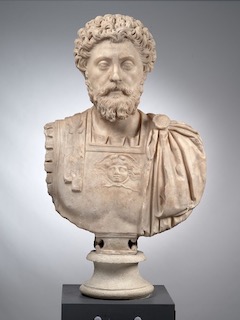
“Meditations” is a collection of Marcus Aurelius’ personal writings, which he composed over a period of several years. Marcus Aurelius was a Roman emperor who ruled from AD 161 to AD 180. He is widely regarded as one of the most important Stoic philosophers of all time.
The book is divided into 12 chapters, each of which deals with a different aspect of Stoic philosophy. The book was not originally intended for publication. Instead, it was written as a form of self-reflection and self-improvement. However, after his death, the book was collected and published, and it has since become one of the most famous works of philosophy in history
“Meditations” is a timeless masterpiece of Stoic philosophy. It is both a practical guide to living a good life and a profound work of philosophy. The book covers a wide range of topics, from the nature of the universe to the nature of the self. It offers a unique perspective on life, one that is both practical and philosophical.
Key Takeaways:
Memorable Quote:
“The happiness of your life depends upon the quality of your thoughts: therefore, guard accordingly, and take care that you entertain no notions unsuitable to virtue and reasonable nature.”
Marcus Aurelius
Marcus Aurelius is emphasizing the importance of controlling one’s thoughts and being mindful of what ideas one entertains. He suggests that happiness is tied to the quality of one’s thoughts, and encourages the reader to cultivate virtuous and reasonable thoughts.
Personal Reflection:
For me, “Meditations” has been a powerful guide to living a more fulfilling life. It has helped me to cultivate a more mindful and stoic approach to life, and to focus on the things that truly matter. I would highly recommend this book to anyone interested in philosophy or self-improvement.
Get “Meditations” on
3. “Republic” – Plato.
Best For Examining Justice And The Ideal Society.

The “Republic” by Plato is a philosophical classic from the ancient Greeks that has continued to be a source of inspiration and enlightenment for readers around the world for centuries. First published in Greece in 380 BCE, The “Republic” remains one of the most influential and widely-read works of philosophy in the Western canon. The book is a profound exploration of justice, morality, and the nature of reality, and is a must-read for anyone interested in philosophy or political theory.
Plato was a Greek philosopher who lived from 427 BCE to 347 BCE. He was a student of Socrates and the teacher of Aristotle and is widely regarded as one of the most important figures in the development of Western philosophy.
The “Republic“ is a dialogue between Socrates and several other Athenians, in which they discuss the nature of justice, the ideal society, and the role of the philosopher in society. The book is divided into ten sections, or “books,” each of which explores a different aspect of these topics.
Book One begins with a discussion of the nature of justice, and the definition of the term. The rest of the books focus on the ideal society, with Book Two examining the structure of the society and the division of labor, Book Three exploring the education of the citizens, and Books Four through Seven examining the four virtues of the ideal society: wisdom, courage, moderation, and justice. Books Eight and Nine examine the nature of reality, with Plato’s famous allegory of the cave and the discussion of the theory of Forms. Book Ten concludes the work with a discussion of the nature of the philosopher and the role of philosophy in society.
Key Takeaways:
Memorable Quote:
“Until philosophers rule as kings or those who are now called kings and leading men genuinely and adequately philosophize, that is, until political power and philosophy entirely coincide…cities will have no rest from evils.”
Plato
Plato believed that philosophy was the highest form of knowledge and that it was the duty of the philosopher to use their wisdom to improve society. He argued that rulers who lacked a philosophical perspective would inevitably make decisions based on their own self-interest and passions, rather than on what was best for the community as a whole.
This quote remains relevant today, as many people continue to question the effectiveness of our political systems and the motives of those in power. It serves as a reminder that philosophy has the potential to play a crucial role in shaping society and that we should strive to incorporate philosophical principles into our political decision-making processes.
Personal Reflection:
Reading The “Republic” was a truly eye-opening experience for me. Plato’s exploration of justice, morality, and the nature of reality challenged me to think deeply about the world around me and to consider how I can live a more just and fulfilling life. I was struck by the idea that the ideal society is one in which everyone has a role to play and that everyone is working together for the common good. This has inspired me to be more active in my own community and to work towards creating a better world for everyone.
Get “Republic” on
4. “Nicomachean Ethics” – Aristotle.
Best For Developing Virtue And Moral Character.
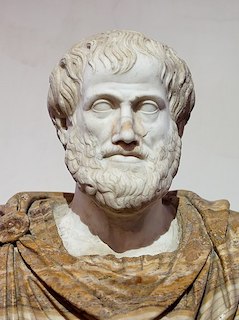
“Nicomachean Ethics” is a work by the ancient Greek philosopher, Aristotle. The book was written in 350 BCE and is named after Aristotle’s son, Nicomachus. The book is one of Aristotle’s most influential works and has been widely studied throughout history. It is considered one of the primary sources of Western ethical philosophy.
The central idea of “Nicomachean Ethics” is that every human being aims at achieving happiness. Aristotle believed that happiness was not a momentary feeling but rather a state of being that can only be achieved through virtuous actions. He believed that people should strive to be virtuous, not for the sake of others or for rewards, but for their own sake.
Aristotle categorized virtues into two types: intellectual and moral. Intellectual virtues are developed through learning and education, while moral virtues are developed through practice and habituation. He believed that a virtuous person would naturally make the right choices and behave in the right way.
Key Takeaways:
Memorable Quote:
“It is not easy to determine the nature of the good life. It is easier to determine the nature of what is not the good life than of what is the good life.”
Aristotle
With this quote, Aristotle implies that there is no universal formula for a good life, and each person’s definition of the good life is subjective and unique to their individual circumstances and values.
Personal Reflection:
Reading “Nicomachean Ethic” I have come to understand that happiness is not a fleeting feeling but a state of being that can only be achieved through virtuous actions. This has inspired me to take a closer look at my own life and evaluate whether my actions align with my values. I have also realized the importance of cultivating virtuous friendships, as they can support and guide me on my journey toward a happy life. Overall, “Nicomachean Ethics” has given me a framework for understanding what it means to live a good life and has motivated me to strive towards that goal.
Further Recommendation:
If you’re interested in delving deeper into the world of ancient Greek philosophy, I highly recommend checking out Caleb Cohoe’s blog. As a Professor of Philosophy at MSU Denver, Caleb brings a wealth of knowledge and expertise to his analysis of the works of Plato, Aristotle, and other ancient thinkers. His posts are engaging, insightful, and offer a fresh perspective on these foundational figures of Western thought. Whether you’re a student of philosophy or simply curious about the origins of some of our most enduring ideas, Caleb’s blog is an excellent resource to explore.
Get “Nicomachean Ethics” on
5. “Tao Te Ching” – Lao Tzu.
Best For Embracing Inner Peace And Harmony.
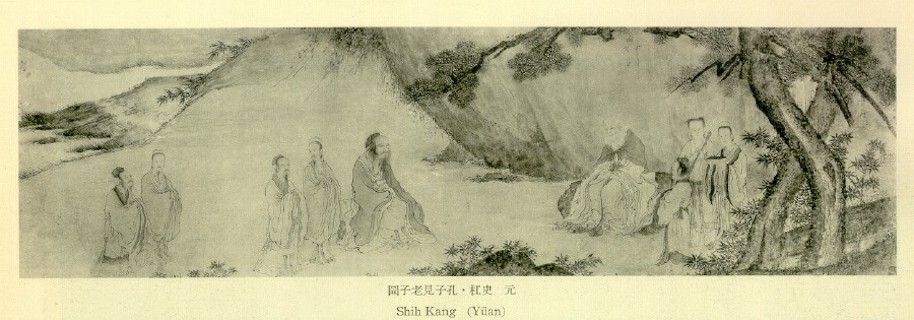
“Tao Te Ching” is a Chinese philosophical text written by Lao Tzu, a philosopher of ancient China. It is considered one of the most significant works of Eastern philosophy and has been widely translated into various languages. In this post, we will discuss the history, content, and key takeaways of “Tao Te Ching”.
“Tao Te Ching” is believed to have been written around the 6th century BCE and consists of 81 short chapters or verses. The book is written in poetic form and is divided into two parts. The first part discusses the Tao, the fundamental force that governs the universe and everything in it. The second part focuses on Te, which refers to the character of a person who lives in harmony with the Tao.
The “Tao Te Ching” presents the philosophy of Taoism, which emphasizes the importance of living in harmony with the Tao. The Tao is often described as the way or the path, and the book teaches that by following the Tao, one can achieve a state of balance and inner peace.
Key Takeaways:
Memorable Quote:
“The Tao that can be told is not the eternal Tao. The name that can be named is not the eternal name.”
Lao Tzu
This quote emphasizes the idea that the Tao is beyond words and concepts and can only be experienced through direct intuition.
Personal Reflection:
As I reflect on the teachings of the “Tao Te Ching”, I am struck by the emphasis on living in harmony with nature and the universe. Lao Tzu encourages us to let go of our desires and instead embrace simplicity and humility. This idea of non-action, or wu wei, can be difficult to grasp in our modern society that values productivity and achievement above all else.
However, I have come to realize that practicing wu wei doesn’t mean being lazy or passive, but rather it’s about being mindful and intentional with our actions. When we can quiet our minds and let go of our attachment to outcomes, we can follow the natural flow of things. This can lead to a sense of ease and contentment that is often elusive in our busy and chaotic lives.
Another lesson that I have taken from the “Tao Te Ching” is the importance of balance. Lao Tzu emphasizes the concept of yin and yang, and how everything in life is interconnected and constantly in flux. This has helped me to approach challenges and conflicts in my life with a more open and flexible mindset. By embracing both the light and the dark, the good and the bad, I have been able to find a greater sense of equanimity and peace.
Overall, the “Tao Te Ching” has taught me the value of simplicity, mindfulness, and balance in my life. By living in harmony with the natural flow of things and embracing both the light and the dark, I have been able to cultivate a deeper sense of inner peace and contentment.
Get “Tao Te Ching” on
6. “Critique of Pure Reason” – Immanuel Kant.
Best For Examining The Limits Of Knowledge.
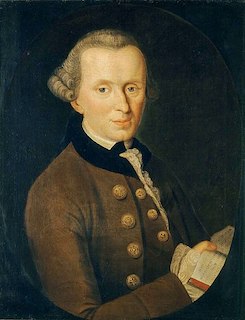
“Critique of Pure Reason” is one of Immanuel Kants, who is widely considered to be one of the greatest philosophers of all time, most famous works. Published in 1781, this groundbreaking work fundamentally changed the way people thought about the nature of knowledge and reality.
Before we dive into the content of “Critique of Pure Reason”, it is important to understand the historical context in which it was written. Kant was reacting against the dominant philosophical traditions of his time, which he saw as overly dogmatic and speculative. He wanted to provide a more rigorous and systematic approach to philosophy, one that was based on reason and evidence rather than speculation and superstition.
So, what exactly is “Critique of Pure Reason” about? At its core, it is an investigation into the nature of knowledge and reality. Kant was interested in answering the fundamental question of how we can know anything at all. He believed that our knowledge is not based on innate ideas or divine revelation but on our own mental processes. He argued that there are limits to what we can know and that we can never have direct access to reality itself.
One of the things that makes “Critique of Pure Reason” so unique is its methodological approach. Kant sought to create a new, scientific approach to philosophy, one that was based on reason and empirical evidence. He argued that knowledge is not just a matter of subjective experience, but is grounded in the objective world. He also introduced the concept of “transcendental idealism”, which argues that our knowledge of the world is shaped by our own mental structures.
Key Takeaways:
Memorable Quote:
“Experience without theory is blind, but theory without experience is mere intellectual play.”
Immanuel Kant
In this quote, Immanuel Kant argues that without theory, experience lacks direction and purpose, while without experience, the theory remains a mere abstract concept without practical application. In other words, he sees theory and experience as complementary and equally necessary for a complete understanding of the world.
Personal Reflection:
Reading “Critique of Pure Reason” has taught me to be more skeptical of my own beliefs and assumptions. It has also shown me the importance of rigorous, systematic thinking when it comes to understanding complex ideas. While some of Kant’s ideas can be difficult to grasp, his approach to philosophy remains relevant and thought-provoking to this day.
Get “Critique of Pure Reason” on
7. “The Daily Stoic” – Ryan Holiday.
Best For Exploring Stoic Philosophy In A Practical Way.

“The Daily Stoic” is a powerful and insightful book that has helped many readers find inner peace and resilience in the face of life’s challenges. Written by Ryan Holiday, the book is a modern-day interpretation of the teachings of the ancient Stoics, such as Seneca, Epictetus, and Marcus Aurelius. In this chapter, we’ll explore the key takeaways from the book, what makes it unique and valuable, and how it can help us live a more fulfilling and meaningful life.
Published in 2016, “The Daily Stoic” is a collection of 366 meditations on the teachings of the ancient Stoics, one for each day of the year, with each entry providing an insightful and thought-provoking perspective on a particular theme or topic. Each daily meditation is designed to help us cultivate mindfulness, self-awareness, and a sense of inner calm in the midst of life’s challenges and distractions.
“The Daily Stoic” is a unique and valuable book for several reasons. First, it provides a practical and accessible introduction to the teachings of the ancient Stoics, making them relevant and applicable to our modern lives. Second, it offers a daily practice for cultivating virtues such as courage, wisdom, and compassion. Finally, it helps us develop a deeper sense of purpose and meaning in our lives by encouraging us to focus on what truly matters.
Key Takeaways:
Memorable Quote:
“We suffer more in imagination than in reality.”
Seneca
Ryan Holiday explains that this quote means we often worry and suffer more about things that may never happen or that are not as bad as we imagine them to be. Seneca, a Stoic philosopher, believed that we should focus on the present moment and not let our fears and anxieties control us. By recognizing that our imagination can cause unnecessary suffering, we can learn to face our problems with courage and clarity.
Personal Reflection:
Reading “The Daily Stoic” has helped me cultivate a deeper sense of self-awareness and inner calm, and has taught me to focus on what truly matters in life. The daily meditations have become an essential part of my morning routine, helping me start each day with a clear and focused mind. I’ve learned to accept what I cannot control and focus my energy on what I can, and approach life’s challenges with greater equanimity and grace. I highly recommend this book to anyone who wants to cultivate inner peace, resilience, and a more meaningful life. also a perfect choice for starting with Stoicism as a newcomer.
Further Recommendation:
If you’re interested in Stoic philosophy, then Ryan Holiday’s blog ‘The Daily Stoic‘ is a must-read. As an author and thinker who has popularized Stoicism in the modern era, Ryan offers a wealth of insights and practical advice on how to apply the wisdom of the ancient Stoics to our daily lives. His blog features daily meditations, in-depth articles, and resources for those looking to deepen their understanding of Stoicism. In addition to his blog, Ryan also has a YouTube channel where he discusses Stoic philosophy, offers writing advice, and shares insights from his personal life.
Get “The Daily Stoic” on
What is Philosophy all about?
Philosophy is a discipline that has been around for thousands of years. Its roots can be traced back to ancient Greece, where thinkers like Socrates, Plato, and Aristotle grappled with big questions about the nature of reality, knowledge, and morality. Over time, the field has evolved and expanded to include a wide range of topics and approaches. Today, philosophy encompasses everything from metaphysics and epistemology to ethics and political philosophy.
So what is philosophy good for? Some might argue that philosophy has no practical value and is simply an intellectual exercise. But others believe that philosophy can help us make sense of the world and lead better lives. By examining our assumptions, questioning our beliefs, and engaging with different perspectives, philosophy can teach us to think more critically, empathetically, and creatively. It can also help us develop a deeper appreciation for the complexity and richness of the human experience.
If you’re interested in exploring philosophy for the first time, it can be daunting to know where to start. One approach is to dive right into the classic texts and ideas that have shaped the field over time. Many of the ancient Greek philosophers, for example, are still widely read and studied today. Alternatively, you might start with more contemporary authors or topics that are particularly relevant to your interests or questions. Whichever path you choose, it’s important to approach philosophy with an open mind and a willingness to engage with ideas that might challenge your assumptions or beliefs.
Wrap Up.
In this post, we have explored several influential works of philosophy that have stood the test of time. From Nietzsche’s “Beyond Good and Evil,” we learned about the importance of questioning traditional morality and values to create new perspectives and ideas. Marcus Aurelius’ “Meditations” taught us the value of self-reflection and how to lead a virtuous life through Stoic philosophy.
In Plato’s “Republic,” we delved into the concept of justice and explored the idea of the ideal society. Kant’s “Critique of Pure Reason” challenged us to think deeply about the nature of knowledge and experience, while Lao Tzu’s “Tao Te Ching” presented us with a guide for living in harmony with nature and the Tao.
Aristotle’s “Nicomachean Ethics” offered us an in-depth exploration of the nature of the good life and the virtues that lead to a fulfilling existence, while Ryan Holiday’s “The Daily Stoic” provided a modern-day approach to Stoic philosophy, offering daily meditations and insights to help us live a more meaningful life.
In conclusion, these works of philosophy offer timeless wisdom and guidance for navigating the complexities of life. By engaging with these ideas, we can gain a deeper understanding of ourselves and the world around us, and learn how to live a life of purpose and fulfillment. Whether we are seeking guidance on personal growth, moral reasoning, or the nature of reality, the insights found in these works of philosophy are sure to provide valuable perspectives and inspire us to live our best lives.
Last Updated on May 6, 2023 by Karl
Discloser:
Please note that some of the links below may contain affiliate links, which means that I may receive a commission if you decide to purchase a paid plan. However, this will not cost you anything extra, and I have included this information in our privacy policy. Please note that this site is not intended to provide financial advice and is solely for entertainment purposes.
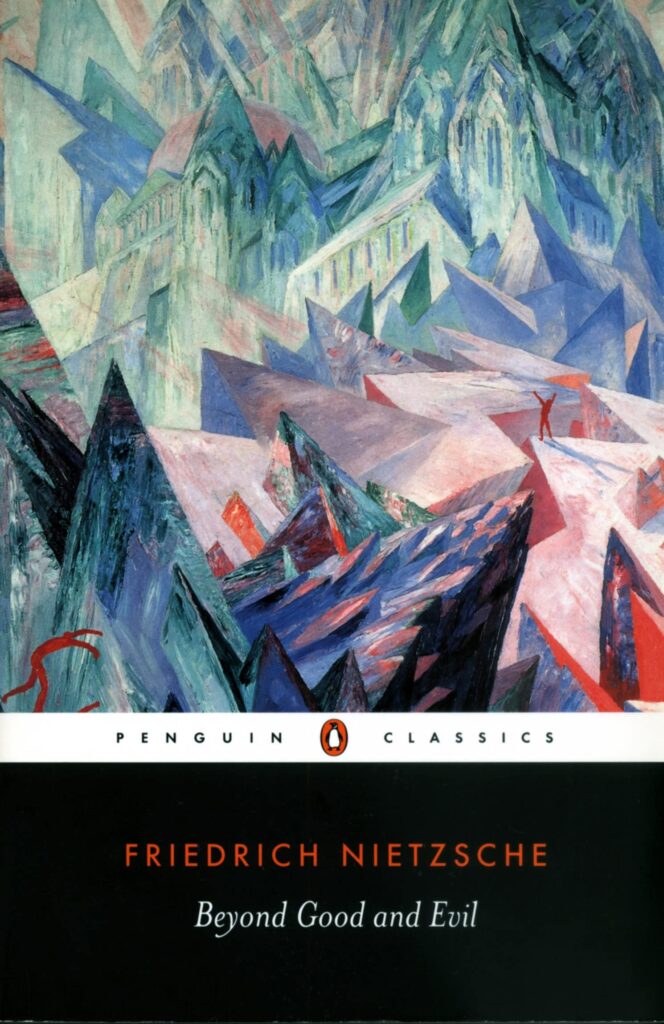
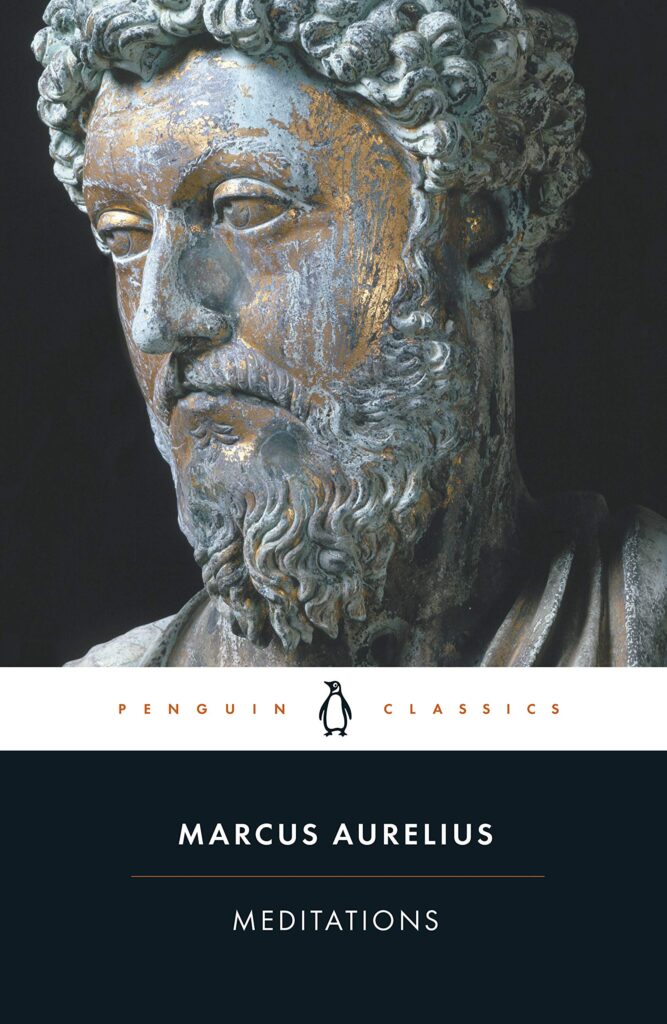
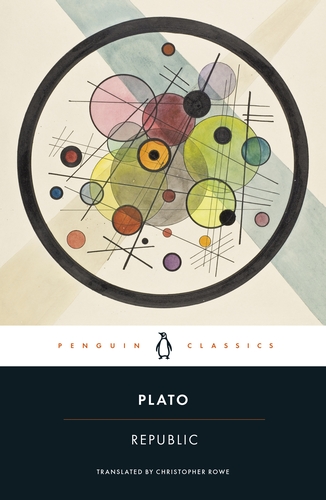
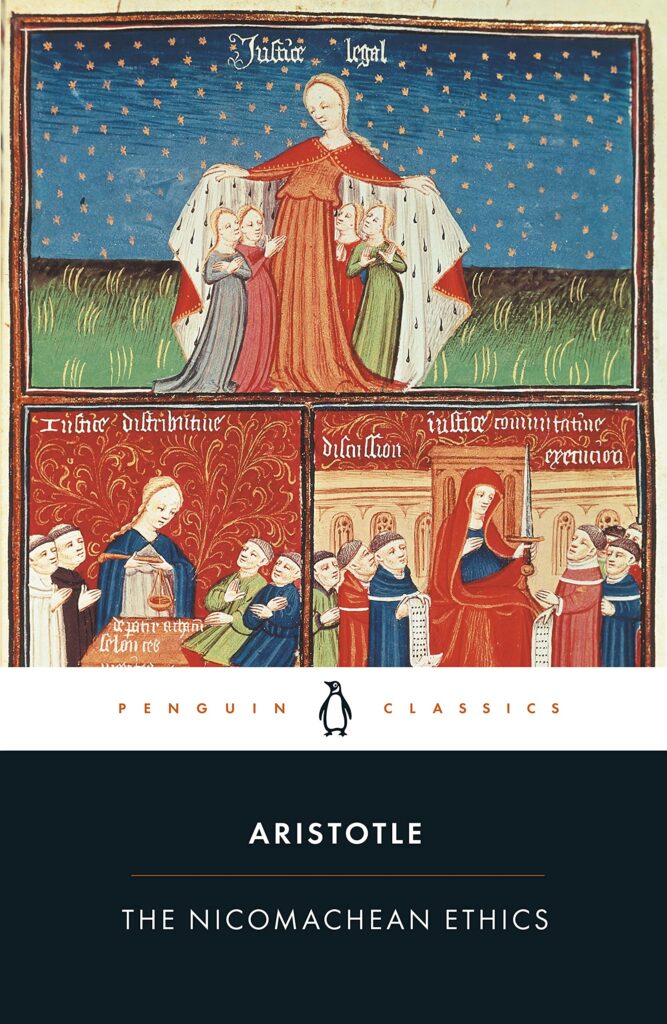
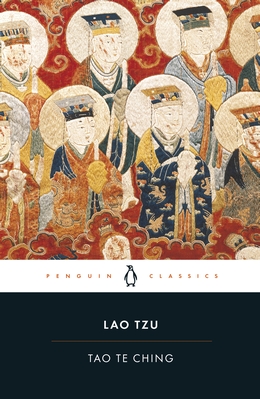
2 Comments